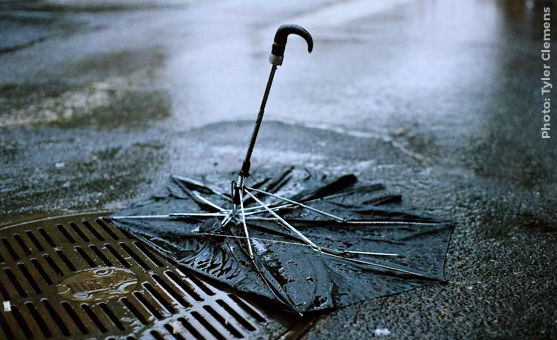In a survey conducted by the Bank of Montreal (BMO), 24% of respondents said that they were living paycheque to paycheque and had not set aside much money for a financial emergency.
While BMO’s annual Rainy Day Survey showed that Canadians have an average $41,694 in emergency savings, the numbers were skewed by high levels of savings at the wealthier end of the spectrum; 44% of those surveyed indicated that they have less than $5000 in emergency savings, and 21% have less than $1000 on hand.
Asked how long they thought they could last if they had to live on their emergency funds, one quarter said they had enough money to pay the bills for a year or more, but 29% said they would exhaust their savings in one month or less.
The survey also considered the effect that not having savings has on Canadians, with 46% saying that they had to take on more debt to deal with emergencies, and 60% feeling stress when financial troubles occur. Even when there is no immediate crisis, 49% say they still feel stress because they lack an emergency fund, and 46% say they feel guilty for not having more money on hand.
"An emergency fund represents more than just a cushion – it provides peace of mind and helps reduce the risk of increased debt when faced with a financial emergency," comments Christine Canning, Head of Everyday Banking, BMO Bank of Montreal. "Having the resources to handle unexpected expenses helps to keep the impact contained to that time period, avoiding further financial obstacles."









